By Daily Sports on September 28, 2015

“Contractual Stability is of paramount importance in football, from the perspectives of clubs, players, and the public” —FIFA Circular Letter 769.
The game of football can only achieve uniformity, certainty, equality and integrity on a worldwide scale if a variety of fundamental principles and basic salient rules are applied to all parties involved. FIFA regulates football in order to protect the rights of players and clubs. The FIFA Regulations aim to safeguard the principle of maintenance of contractual stability between professional football players and clubs which is of fundamental importance in order to have an efficient transfer system and to maintain a competitive balance.[1]
From the case of Magnus Troest[2], the case of Cheick Tidiane Sarr[3], the case of Gerard Pique[4] down to the case of Matuzalem[5], the Court of Arbitration for Sports (CAS) has been found to at all times tried to give flesh, life and meaning to this very powerful concept of contractual stability. Even, these high profile cases have shown that a principle such as the maintenance of contractual stability must be reviewed and refined in order to improve the manner in which it is policed and governed.
Pacta Sunt Servanda is the pillar of the law governing contract. The doctrine which could be traced to the ancient Roman law, means in a nutshell that “agreements must be kept”.
The Court of Arbitration for Sports (CAS) recently issued a decision on an appeal lodged by the club Al Kuwait Sporting Club, fully confirming a previous decision from the FIFA Dispute Resolution Chamber (DRC)[6]. This decision by CAS supports FIFA’s aim of safeguarding the principle of maintenance of contractual stability between professional football players and clubs. The CAS confirmed on 30th December, 2008 that Al Kuwait SC shall pay compensation for breach of contract in the amount of $120,000 to the Estonian player[7], and that Al Kuwait SC shall be banned from registering new players, either nationally or internationally, for the two registration periods following the notification of the decision of CAS.
In its decision of 15th February 2008, the DRC had determined that Al Kuwait SC had breached the employment contract with the player Vjatseslav Zahovaiko. The DRC had issued the same verdict which CAS confirmed. During the proceedings before the DRC and the CAS, AL Kuwait SC denied being responsible for the early termination of the employment contract and declared that it legally terminated the employment contract in consequence to negative results of a medical test that was carried out after the conclusion of the respective employment contract[8].
Contractual Stability is one of the major criteria for all parties to a contract, in the world of football, to the football club on the one hand and the football player on the other hand. Stability allows certain terms and conditions of relationships to be fixed, which reflect on the interests of the parties and enables them to take into due account the economic efficiency of a deal.
By Article 2 (2) of the FIFA Regulations on Status and Transfer of Players, players are either considered as amateurs or professionals. The well drafted Regulation clearly defines a professional as a player who has a written contract with a club and is paid more for his footballing activity than the expenses he effectively incurs[9].
Thus, all of the differently designated contract such as agreements of “apprenticeship”, “training” or “scholarship” will be categorized as either amateur or professional. Since the introduction of the new Regulation in 2001 (Revised two times, in 2006. and 2010[10].), the so-called “federative rights” were replaced by the concept of contractual stability. Under this concept, the link between a player and the club is principally based on a contract instead of the registration. Hence, a written contract of employment is the instrument which regulates the relations with professionals, but not with amateurs[11].
The contract which creates the very sacred link between a player and the club is very vital in the modern era of football as all eyes go back to that link in cases of breach. The preservation of that link is strongly advocated for by the writer in the Nigerian Professional Football League[12].
This principle of contractual stability is of paramount importance in the world of football. It is at the basis of an efficient transfer system characterized inter alia by the redistribution of wealth from ‘big’ to ‘small’ clubs as well as by secured investments in youth development. If the principle of contractual stability is very well understood by clubs, players and all stakeholders in the football world and put into practice, the level of growth both at the amateur and professional level of football in Nigeria will be enviable.
•Amobi Ezeaku, Esq. is Legal Adviser, Nigeria Players’ Union. Your comments and reactions are welcome. Please send to 08038338272, 08158461730 or by e-mail to amobi.ezeaku@yahoo.com
_____________
[1] Contractual stability in professional football: recommendations for clubs in a context of international mobility by Diego F.R. Compaire (Italy/Argentina), Gerardo Planas R.A (Paraguay) and Stefan-Eric Wildemann (Germany).
2 Aston Villa FC vs. B.93 Copenhagen (CAS 2006/A/1177).
3 F.C. Girondins de Bordeaux vs. Lyngby Boldklub & Lundtofte Boldklub (CAS 2005/A/838).
4 F.C. Barcelona SAD vs. Manchester United F.C. (CAS 2004/A/691).
5 F.C. Shakhtar Donetsk vs. Matuzalem Francelino da Silva, Real Zaragoza SAD & FIFA (CAS 2008/A/1519) & Matuzalem Francelino da Silva & Real Zaragoza SAD vs. F.C. Shakhtar Donetsk and FIFA (CAS 2008/A/1520)
6 www.fifa.com
7 Vjatseslav Zahovaito.
8 This argument was turned down by both the DRC and the CAS in view of Article 18 Paragraph 4 of the Regulations on the Status and Transfer of Players.
9 All other players are considered to be amateurs.
10 2014 also.
11 Mr. Sc. Andrijana Bilić: Contractual Stability versus Players’ Mobility. P.883
12 Sadly, most clubs in Nigeria do not abide by the terms of the contract entered into by players. Clubs incessantly terminate the contracts of players without taking into consideration the provisions of the law in Nigeria.
[1] Contractual stability in professional football: recommendations for clubs in a context of international mobility by Diego F.R. Compaire (Italy/Argentina), Gerardo Planas R.A (Paraguay) and Stefan-Eric Wildemann (Germany).
[2] Aston Villa FC vs. B.93 Copenhagen (CAS 2006/A/1177).
[3] F.C. Girondins de Bordeaux vs. Lyngby Boldklub & Lundtofte Boldklub (CAS 2005/A/838).
[4] F.C. Barcelona SAD vs. Manchester United F.C. (CAS 2004/A/691).
[5] F.C. Shakhtar Donetsk vs. Matuzalem Francelino da Silva, Real Zaragoza SAD & FIFA (CAS 2008/A/1519) & Matuzalem Francelino da Silva & Real Zaragoza SAD vs. F.C. Shakhtar Donetsk and FIFA (CAS 2008/A/1520)
[6] www.fifa.com
[7] Vjatseslav Zahovaito.
[8] This argument was turned down by both the DRC and the CAS in view of Article 18 Paragraph 4 of the Regulations on the Status and Transfer of Players.
[9] All other players are considered to be amateurs.
[10] 2014 also.
[11] Mr. Sc. Andrijana Bilić: Contractual Stability versus Players’ Mobility. P.883
[12] Sadly, most clubs in Nigeria do not abide by the terms of the contract entered into by players. Clubs incessantly terminate the contracts of players without taking into consideration the provisions of the law in Nigeria.
Source Daily Sports
Posted September 28, 2015
You may also like...

Neymar’s European Suspension Reduced From Three To Two...

Olympic medallist handed 2-month ban for mocking Islam...

Falcons under pressure after slim Banyana win –...

Crunch time in Mumbai as Flamingos battle USA...

How Nigerian universities can become incubators of sports...

Kipchoge Wins World Sport Star of the Year...

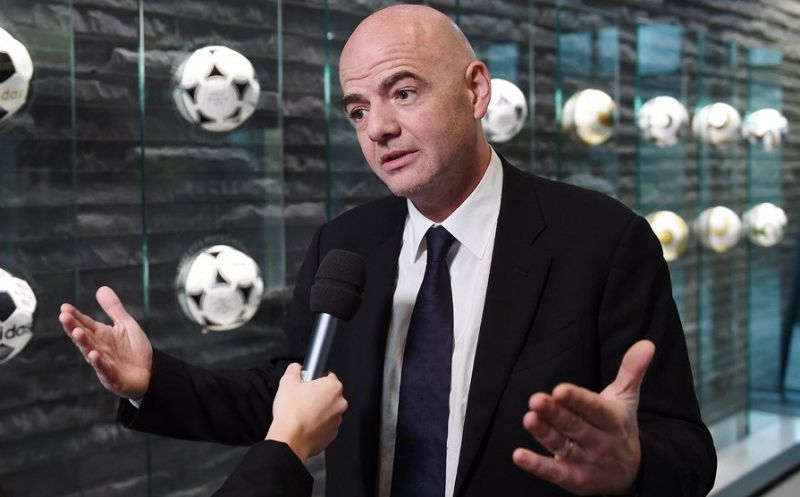 ‘We witnessed unacceptable, ugly scenes’ - FIFA slams Senegal, praises Morocco over AFCON 2025 final
‘We witnessed unacceptable, ugly scenes’ - FIFA slams Senegal, praises Morocco over AFCON 2025 final_1.jpeg) What Super Eagles And Others Received From 2025 AFCON Prize Pool
What Super Eagles And Others Received From 2025 AFCON Prize Pool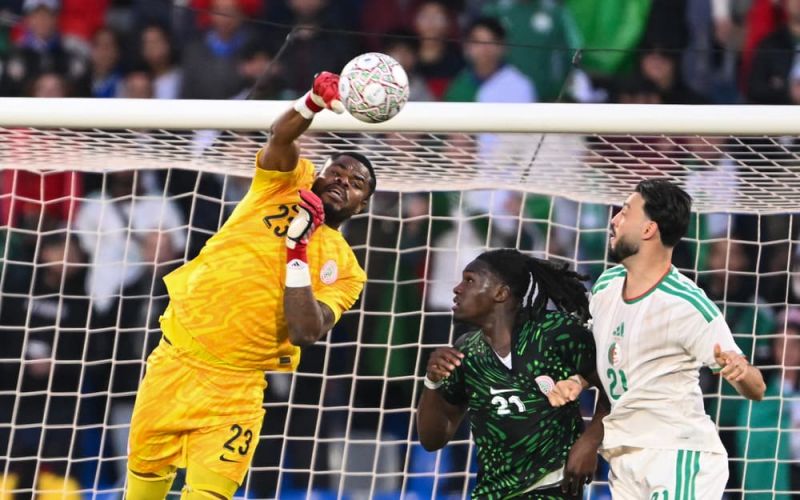 Calvin Bassey, Nwabali selected for 2025 AFCON Best XI
Calvin Bassey, Nwabali selected for 2025 AFCON Best XI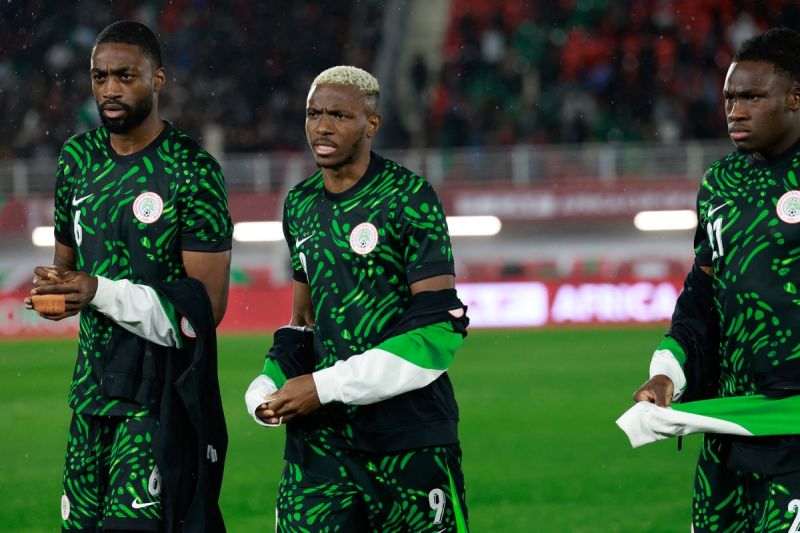 Super Eagles enjoy big jump in FIFA Ranking after 2025 AFCON run
Super Eagles enjoy big jump in FIFA Ranking after 2025 AFCON run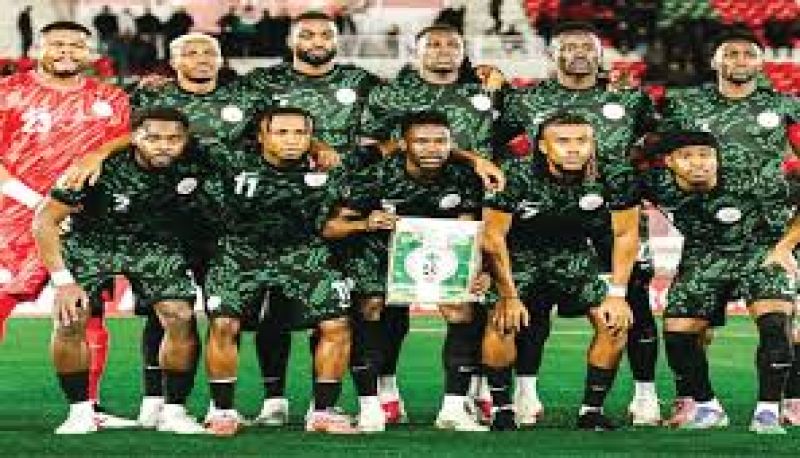 Ogbu hails current Eagles as Nigeria’s greatest
Ogbu hails current Eagles as Nigeria’s greatest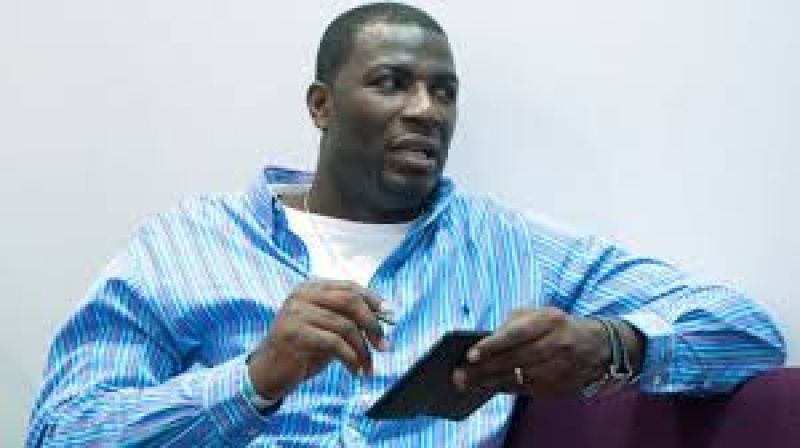 Ahmedu backs Oyedeji to steady Nigerian basketball
Ahmedu backs Oyedeji to steady Nigerian basketball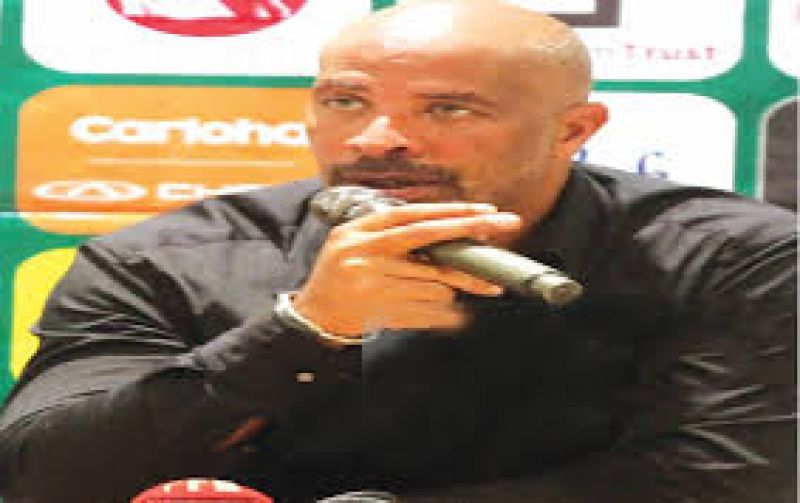 Gusau backs Chelle to continue as Eagles coach
Gusau backs Chelle to continue as Eagles coach.jpeg) Osimhen, Ndidi, Awaziem party in Lagos after AFCON third-place finish
Osimhen, Ndidi, Awaziem party in Lagos after AFCON third-place finish_1.jpeg) Senegal face punishment after ‘shameful’ walk-off protest in chaotic Afcon final - latest
Senegal face punishment after ‘shameful’ walk-off protest in chaotic Afcon final - latest.jpeg) AFCON: Why I told Senegal teammates to come back to pitch against Morocco – Mane
AFCON: Why I told Senegal teammates to come back to pitch against Morocco – Mane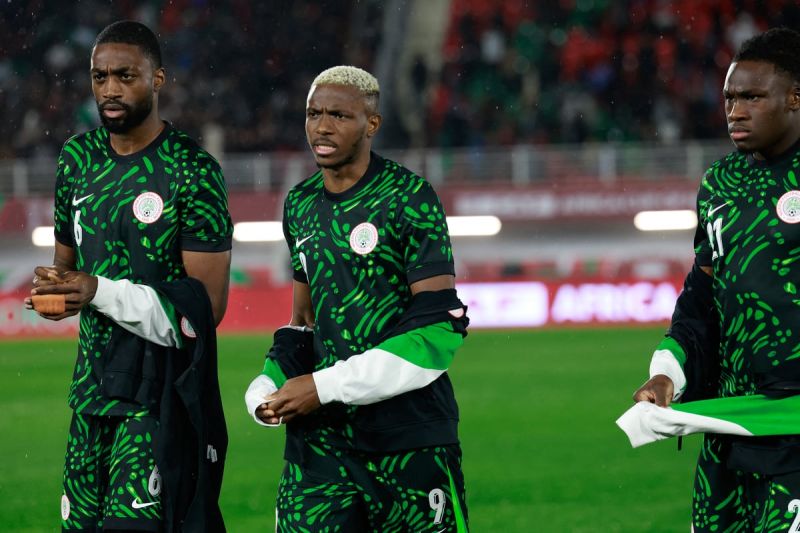 AFCON 2025: Osimhen, Ndidi, two Super Eagles players leave camp after Egypt win
AFCON 2025: Osimhen, Ndidi, two Super Eagles players leave camp after Egypt win_1.jpeg) We Have Already Made A Decision On Future Of Eric Chelle As Super Eagles Coach – NFF
We Have Already Made A Decision On Future Of Eric Chelle As Super Eagles Coach – NFF Rangers International going, going . . . (63,482 views)
Rangers International going, going . . . (63,482 views) Amaju Pinnick: A cat with nine lives (54,775 views)
Amaju Pinnick: A cat with nine lives (54,775 views) Second Term: Amaju Pinnick, Other NFF Heavyweights Home to Roost •How Pinnick Broke the Jinx (52,667 views)
Second Term: Amaju Pinnick, Other NFF Heavyweights Home to Roost •How Pinnick Broke the Jinx (52,667 views) Current issues in Nigerian sports: Matters arising (52,337 views)
Current issues in Nigerian sports: Matters arising (52,337 views) Sports Development: Zenith Bank on the zenith (52,265 views)
Sports Development: Zenith Bank on the zenith (52,265 views) Missing $150,000 IAAF Grant: Solomon Dalung’s Hide and Seek game (52,174 views)
Missing $150,000 IAAF Grant: Solomon Dalung’s Hide and Seek game (52,174 views) Gov. Abdullahi Ganduje’s solid footprints, commitment to sports development in Kano State (52,040 views)
Gov. Abdullahi Ganduje’s solid footprints, commitment to sports development in Kano State (52,040 views) NFF Presidency: Pinnick, Maigari, Ogunjobi, Okoye in Battle for Supremacy (51,597 views)
NFF Presidency: Pinnick, Maigari, Ogunjobi, Okoye in Battle for Supremacy (51,597 views) Olopade, BET9A wave of revolution in NNL (50,775 views)
Olopade, BET9A wave of revolution in NNL (50,775 views) Commonwealth Games 2018: Shame of Muhammadu Buhari, Solomon Dalung (49,303 views)
Commonwealth Games 2018: Shame of Muhammadu Buhari, Solomon Dalung (49,303 views) Ibrahimovic’s Man U exit: Whose decision is it? And in whose interest? (47,692 views)
Ibrahimovic’s Man U exit: Whose decision is it? And in whose interest? (47,692 views) John Mikel Obi: Segun Odegbami’s Outrageous Call! (47,160 views)
John Mikel Obi: Segun Odegbami’s Outrageous Call! (47,160 views)